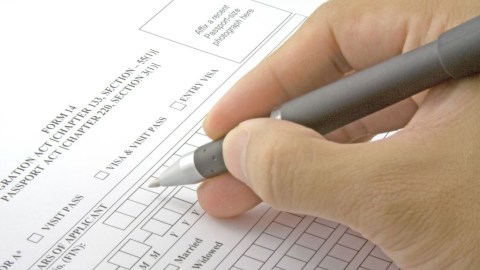Editorial: Immigrants at the Mercy Of Judges
The chance that an asylum case is approved depends on which judge one gets.

USCIS ha experimentado un aumento de solicitudes en varios beneficios, como los casos de asilo. Crédito: Shutterstock
Immigration courts are a microcosm for a system in urgent need of repair. The fate of hundreds of thousands of people is decided there, at the whim of judges too overworked to perform their job well, and through a process in which 5-year-olds can be forced to defend themselves without a lawyer against adults wishing to deport them.
The worst part is that, far from repairing a situation that defies legal sanity, Donald Trump’s advent to government could make it even more dire for immigrants.
An analysis released a few days ago by the Transactional Records Access Clearinghouse (TRAC) at Syracuse University in New York, showed that there is an increasing disparity between the decisions made by immigration judges in comparable asylum cases.
For instance, in a Los Angeles court, rejections to asylum petitions among of the 33 judges tallied by TRAC range from 21.8% to 97.1%, depending on the judge. In New York and Newark courts, they range from 2.2% to 59% and 15.7% to 98.6%, respectively.
That means that the chance that an asylum case is approved depends on which judge one gets.
One explanation links this situation to the volume of cases overwhelming the system.
A recent estimate said that there are more than 520,000 cases pending in the country’s 56 courts, where nearly 300 judges work, including the 65 new judges appointed in the last two years. According to Human Rights First, if one judge completed 750 cases per year, 520 judges would be required to eliminate the delay in one year.
Observers anticipate that the outlook for a speeding up of the process is not favorable. If the Trump Administration focuses on deporting millions of people, as the president-elect has stated, many of them will have to pass through these crammed courts.
Moreover, Trump said that he would freeze federal hiring, so it will be hard to add more judges to relieve the bottleneck.
If more of them were appointed their selection would be in the hands of next Secretary of Justice Jeff Sessions, the most anti-immigrant senator currently in the Senate, who will also have the task of establishing the conditions to grant asylum.
The immigration court we have today is bad. Still, as with everything else related to immigrants, it can always get worse.




